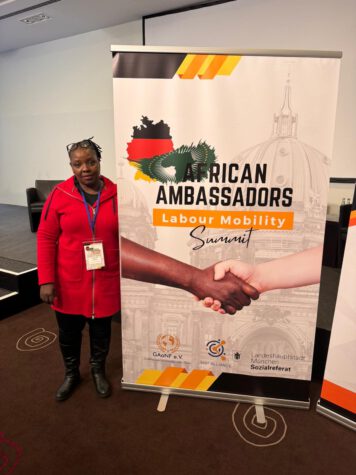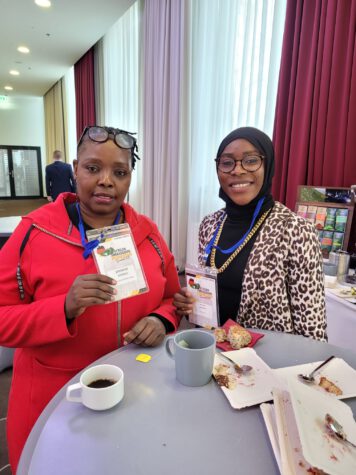At the African Ambassadors Labor Mobility Summit last week we met with political representatives, African ambassadors, chambers of commerce, civil society and diasporic associations, among others. We discussed the potentials of labour migration, as well as the challenges and possible solutions, the necessary interfaces and cross-border cooperation as well as favourable framework conditions for successful labour migration.
Our take on this topic is that there is a need to decolonize the discourse around so-called “labour migration”. The discourse itself obliges refugees and migrants from the Global South to adhere to the standards and expectations of the Global North, while changing little about labour relations in Germany. Refugees and migrants in Germany are in search of work but are disenfranchised in their right to work due to a bureaucracy that is full of barriers and laws that marginalize based on residence status. While capitalist policies differentiate between “valuable” and “non-valuable” work, “skilled” and “unskilled” labour, racist policies operate with debates around “integration”, thereby othering refugees and migrants. Although collective charter-flight deportations are extremely expensive, costing 4.000 Euro per person in 2021*, Germany would rather deport than employ. At the same time, certificates, careers and degrees obtained in the Global South are often invalidated and do not receive recognition in Germany. This makes it difficult for refugees and migrants to find employment. In addition to this, right-wing populist demands are gaining traction: Lager are refusing to pay for cleaning services and are therefore reintroducing the “work obligation” for refugees, whereby people in the asylum process are forced to work for 80 cents an hour. If they refuse to work, their benefits are cut by up to 180 euros per month.

IW*S
International Women* Space is a feminist, anti-racist political group in Berlin with refugee and migrant women* and non-migrant women* as members.
